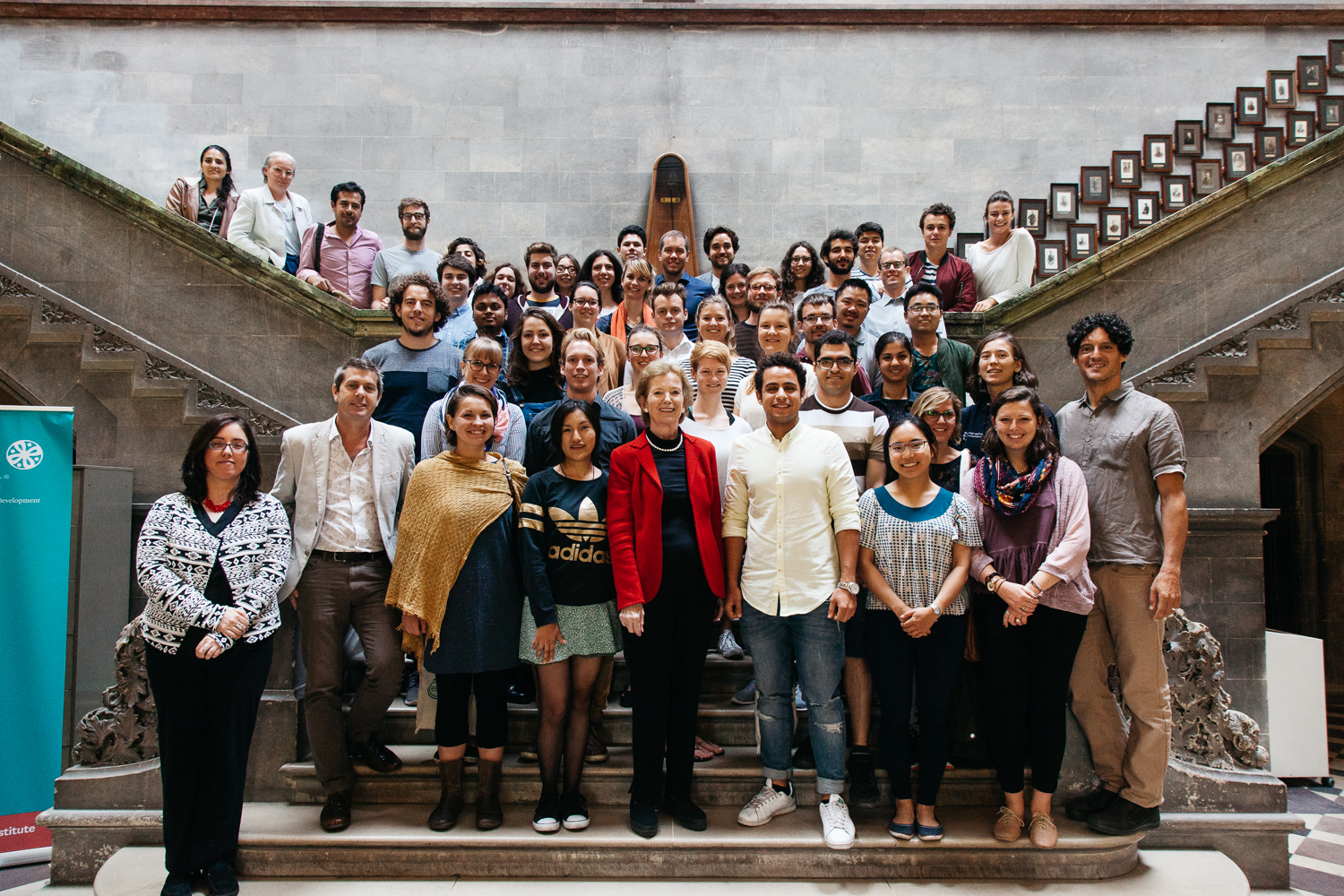On Monday 14 August Mary Robinson delivered the opening keynote speech at the Journey International Summer School, held in Trinity College Dublin.
The event launched the two-week session at Trinity College, which is hosting 40 Journey programme participants comprising of MSc and PhD students from around the world. The summer school is part of the EU’s main climate initiative, Climate-KIC, and participants are given the opportunity to interact with a range of groups, learn about the latest climate science and policy, and share ideas on new adaptation and mitigation solutions.
Mary Robinson spoke of the importance of keeping climate justice at the centre of these solutions to ensure that the people who are most impacted by climate change can share in the benefits of a world powered by sustainable energy. Mary Robinson told the assembled group of students “The existential threat of climate change confronts us with our global interdependence. It cannot be seen as anything other than a global problem, and each nation must play an appropriate part to tackle it”.
She recounted meeting women from agricultural communities in Rwanda, Liberia and elsewhere who are no longer able to plan their harvests as the weather patterns have changed. In particular she spoke of Ugandan farmer Constance Okollet whose family is struggling to survive because of the havoc climate change has brought upon their agricultural yield. Ursula Rakova from the Carteret Islands is another woman who has taught us about another aspect of climate change – the issue of climate displacement. Ursula has organised for her people to relocate to Papua New Guinea in order to be safe because their homes have been, or are at risk of being, destroyed because of rising sea levels.
The speech focused on the challenging goals the international community has set, and how they are more important now than ever. Agenda 2030 links climate change and sustainable development. While dissuading the world from using fossil fuels is a significant task, she argued, it pales in comparison to the challenge of enabling development for all people while avoiding the most devastating impacts of climate change. The energy decisions made now will have monumental consequences for future generations.
Mary Robinson outlined one innovative solution to ensuring that there is no one left behind in the energy transition which has been proposed by the Mary Robinson Foundation – Climate Justice; that sustainable energy access can be provided through social protection systems. Such systems target those most in need, and have the infrastructure and delivery mechanisms already in place. She highlighted a promising pilot case in Malawi which delivers energy efficient cook stoves to the poorest 10% of labour-constrained households.
The Journey International Summer School started their session in Paris at the L’École Polytechnique and the Universite Pierre & Marie Curie, and will spend their final week at Riga Technical University in Latvia.
Related Links
The Role of Social Protection in Ending Energy Poverty – A Policy Brief


